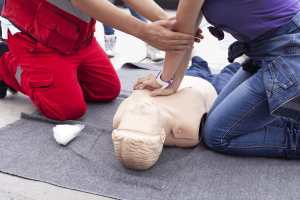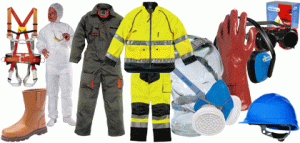I find that I am often asked questions such as “What signage should we be displaying?” or “How often should I review risk assessments?” So I thought that this week I would give you my ABC of everyday Health & Safety topics and what you should be considering about each.
This checklist can be used as an aid in assessing and reviewing the management of health and safety in your workplace. The checklist is not an exhaustive list of items to be addressed and will not necessarily be comprehensive for all work situations.
This list looks at 20 areas of concern from Asbestos to Working at height. If you require any further help on these, or on a subject not included, please feel free to contact me on 01458 253682, email or via our Facebook page or by Twitter.
This week’s recent HSE cases are looking at two accidents that shouldn’t have happened
- The worker, from Ashford, fractured his shin and a vertebra in the incident at Elvington Lane in Hawkinge on 30 April 2013
- The employee’s glove became entangled in the drill bit. He suffered partial amputation to the third finger on his right hand..
As ever, if you have a subject that you would like us to cover one week, please contact us by phone 01458 253682, email or via our Facebook page or by Twitter.
Health and Safety Checklist
Use this checklist to carry out effective and systematic safety inspections – Of course remember to carry out any actions that you find to be needed.
Asbestos.
- Have you got an up to date Management Asbestos Plan that clearly shows where asbestos is, or may be, found and the present condition of that asbestos?
- Are your staff trained in asbestos awareness? If you or your staff are involved in the construction industry be that as a professional such as Architect, Surveyor etc. or as a site operative from tradesman to labourer, you must ensure that they recveive Asbestos Awareness training annually. The Wilkins Safety Group are running an Asbestos Awareness Course on 12th April 2016 – See details under courses
Electrical.
- Has your fixed system been tested in the last five years? All too often the answer to this is No even though additional sockets etc have been added over the years.
- Have portable appliances been tested/checked? I have also been asked if it is still a legal requiirement to have items “PAT” tested each year. The answer is no the law simply requires an employer to ensure that their electrical equipment is maintained in order to prevent danger. It does not say how this should be done or how often. Employers should take a risk-based approach, considering the type of equipment and what it is being used for. If it is used regularly and moved a lot e.g. a floor cleaner or a kettle, testing (along with visual checks) can be an important part of an effective maintenance regime giving employers confidence that they are doing what is necessary to help them meet their legal duties.
- Are cables, leads, plugs, sockets and any other electrical equipment in good condition?
Fire.
- Have you got an up to date fire risk assessment?
- Are the means of escape clear of obstructions? Unlike the one pictured here.
- Has there been a recent fire evacuation drill? – When you hold such a drill do you block the usual way in and out, just to see if staff know where to go if their usual route was on fire?
First Aid
- Have you got enough trained first aiders on site at all times and is their training up to date?
- Is there a list displayed that shows everybody who the first aiders are?
- Are the first aid boxes in good condition and full? – Unlike this one found on a site recently!
Hazardous Substances
- Are they all safely stored and properly labelled?
- Have you carried out and kept up to date COSHH (Control of Substances Hazardous to Health) and DSEAR (Dangerous Substances and Explosive Atmospheres) assessments and made sure that all are aware of these and the control measures?
- Are suitable controls in place and do you monitor this?
Heating and Ventilation
- Are the heating and ventilation systems working properly?
- Is a satisfactory temperature maintained?
- Are there thermometers on display for all to see?
Housekeeping
- Are all corridors, aisles, gangways, office floors etc. clear of slip and trip hazards?
- Are all welfare areas, (toilets, mess rooms, kitchens etc.) clean and tidy?
Lighting
- Is there adequate lighting – this may need to be better in some situations.
- Are all lights in good condition and working?
Machine Safety
- Are all guards in position and correctly working, adjusted, interlocks checked and with no exposed dangeropus parts?
- Have all operatives and managers been trained in the safe operation of the machinery they use?
Manual Handling
- Has everbody in your employ been given Manual Handling training?
- Do you monitor operatives to ensure all follow safe lifting techniques?
Mechanical Lifting Equipment
- Are safe working loads (SWLs) Clearly marked?
- Is the equipment being used within those limits?
- Are the statutory inspections up to date? (Normally annual unless the equipment is used for lifting people in which case these should be at six-monthly intervals.)
Personal Protective Equipment
- Is everybody supplied with the appropriate PPE for their needs?
- Have staff who need face masks been “Face Fitted”
- Are there suitable arrangements for storage, cleaning and maintenance of the PPE?
- Is there a supply of replacement items?
- Are there items of PPE for visitors?
Risk Assessments
- Are your risk assessments current (reviewed within last two years) and are recommended actions being followed?
- Are all staff aware of these?
Signage
- Are all signs visible, clean and relevant?
- Do you require signs up in another language?
Storage
- Is it safe and stable?

- Can all storage be accessed safely?(No climbing on chairs and tables)
Tools & Equipment
- Are all tools and equipment in good condition?
- Are they regularly checked and maintained?
- Is there a register of these checks?.
Training
- Do you have a training matrix drawn up that clearly shows what training each member of staff including management, requires and has received. Complete with dates of courses and renewal dates?
Vehicles on site
- Are vehicles and pedestrians segregated wherever possible?
- Is there a speed limit?
- Do you control who can bring a vehicle on to site?
- Do you have copies of driving licences and other training certificates for all who drive vehicles on company business?
- Have you enforced the “No Smoking in Company Vehicles” law?
Waste
- Is waste sorted and stored by type, clearly marked and regularly removed?
- Do you keep copies of “Waste Transfer Notices” from waste removal contractor?
Welfare
- Do you have the correct amount of toilet facilities for the number of staff at work and for each sex?
- Do you have/need shower facilities?
- Do you have suitable rest and eating facilities at work for your woprkforce to sit and eat their food away from their workstation/tools/equipment/materials etc?
- Have arrangements been set up to keep these facilities clean and tidy?
Work at Height
- Is it avoided wherever possible, otherwise done from a safe platform such as a scaffold or scaffold tower?
- Are ladders only used for short duration works?
Training

We shall be running new courses again in 2016 and the dates and details of forthcoming courses will be published here each week.
But remember we are still available for running “In House” courses and we have now also added a new training service for our customers.
Site Manager Safety Training Scheme
(Part of Construction Skills “Site Safety Plus” Suite of Courses)
We have formed an association with a local company TQ Excel who are one of the UK’s leading providers of accredited training to the highways sector of the construction industry.
AS a result of this we can now offer the SMSTS (Site Management Safety Training Scheme)
The Site Management Safety Training Scheme forms part of the Construction Skills (CITB) Site Safety Plus range of courses which are highly regarded within the construction industry.
The 5 day training course is aimed at site managers wishing to develop a more in depth legal, moral and social understanding of their role and also teaches delegates how to manage on-site health and safety in accordance with current legislation.
We also offer the 2 day SSSTS Training Course (Site Supervisor Safety Training Scheme) which is a 2 day course aimed at those with on-site supervisory responsibilities.
We also can now offer NRSWA courses.
These qualifications are for those involved in the Excavation and Re-instatement of the highway and are specified under the New Roads and Street Works Act 1991. They are a legal requirement for “statutory undertakers” (i.e. Utility Contractors) and for those working under “section 50 licenses” (Drainage works etc).
Where works are subject to the Act there must be a minimum of 1 qualified operative on every site that is qualified for the operations being carried out and there must be a Supervisor available to visit the site at least on a daily basis.
The qualifications are also often specified by client organisations and local authorities when appointing contractors for works involving excavation or reinstatement of the highway for other purposes.
The first of our courses are:
Liability for Accidents and Ill Health at Work
Seminar Objective – Training /CPD Certificate issued
This one day course looks at your liability, as Company Owner, Director, or Manager. The course will look at a number of case studies and explain the legal requirements of the Employer, Managers, and your Safety Adviser
Seminar Outline
- Legal framework and legislation (Criminal and civil liabilities)
- Roles and responsibilities of Directors, senior management team and the H&S Advisers
- An HSE Investigation
- Criminal Law – Who’s Liable
- The New powers of the Courts
- Compensation – Who’s Liable
- Corporate Manslaughter – The key things to know
- When it is the employee’s fault
- How to reduce your liability as an employer
- How you could be personally liable
- Successful cases against Health & Safety Advisers
Benefits of Attending
- By attending this course you will understand your liability regarding Health & Safety at work. And what you need to do to protect yourself and your business.
- How the Authorities investigate incidents and how the courts fine you.
Course Duration:
1 day
COURSE REF DATE(s) LOCATION
LIAB 1601 Monday 4th April 2016 Taunton Racecourse, TA3 7BL
Fee: £150 to include Course notes, mid-morning & afternoon refreshments, Finger buffet lunch, CPD Certificate (Fee subject to VAT)
Re-qualification First Aid at Work
This First Aid at Work Refresher course is designed for anyone who has previously completed the 3 day First Aid at Work qualification and needs to renew their skill-set and certification. This refresher lasts 2 days and secures the delegates’ qualification for a further 3 years before the course will need to be retaken.
Updated to cover the control of catastrophic bleeding
SYLLABUS
- Course introduction.
- Legal compliance.
- Managing incidents.
- Examining a casualty.
- Conscious/unconscious casualties.
- Treating a casualty.
- Further emergency action.
- General common illnesses.
- Basic life support.
- First aid kits/equipment.
- Recording/reporting injuries.
Course Duration: 2 Days
COURSE REF DATE(s) LOCATION
WSG. RFAW. 1601 14th & 15th April 2016 6 Amor Place, Taunton, Somerset TA1 4SG
The all-inclusive rate of £165.00 + vat per delegate will be payable at the time of booking.
Your staff can attend three months before the expiry date on their certificate and still retain the month of expiry on their new certificate.
They must renew no later than 28 days after their expiry date.
CDM Regulations 2015 – For the Smaller Builder
Course Objective
The Construction (Design and Management) Regulations 2015 (CDM 2015) come into force on the 6th of April 2015, and will apply to all construction projects in the UK incl. Domestic projects
This CDM 2015 awareness training course has been developed to provide smaller builders and tradesmen, especially those who haven’t dealt with CDM before, with an understanding of their role and responsibilities under CDM 2015.
Seminar Outline
- Overview of the Industry accident rate
- The Legal framework
- Enforcement
- Risk Assessment
- CDM 2015 and the duty holders: Client, PD, Designers
- Principal Contractors duties
- Contractors duties
- Construction Phase Plan
- Site Safety Management
- Benefits of Attending
This course give an overview of the requirements for smaller builders and domestic clients and how the regulations apply to all construction projects from minor repairs and decorating works through to building a new house for a domestic client.
Course Duration: 1/2 day 09:00 Hrs to 12:30 Hrs
COURSE REF DATE(s) LOCATION
CDM-SB-1601 Tuesday 12th April 2016 Taunton Racecourse, TA3 7BL
Fee: £80 to include Course notes, Coffee on arrival & mid-morning refreshments and a Certificate of Training (Fee subject to VAT)
A free lunch is also included if you book this course along with the Asbestos Awareness course below.
ASBESTOS AWARENESS – Half-Day Course
Course Objective – Training /CPD Certificate issued 
Asbestos awareness training is essential for employees whose work holds the potential to expose them to asbestos. The Control of Asbestos Regulations 2012 puts a requirement on employers to ensure that their staff have undergone suitable asbestos awareness training so that they are aware of the potential dangers they may face and also the procedures they must follow in the event they are working in the vicinity of asbestos containing materials (ACMs)
Who Is This Course Suitable For?
The main groups of workers that are deemed to be at risk from asbestos exposure and therefore the groups’ most requiring asbestos awareness training are as follows:
- General Maintenance Staff.
- Electricians, Plumbers & Gas Fitters. Painters & Decorators.
- Construction & Demolition Workers. Joiners and Plasterers.

- Computing & Telecommunications Engineers.
- Heating & Ventilation Engineers.
- Roofers.
- Architects & Building Surveyors
- Fire & Burglar Alarm Installers
Syllabus
- Asbestos- a history of use
- What is Asbestos
- Amosite (Brown) – Chrysotile (White) – Crocidolite (Blue)
- Asbestos Containing Product Examples
- Asbestos Properties and the hidden legacy of asbestos

- Control of Asbestos Regs and Requirements
- Exactly who is at risk
- Action to take on discovery and Survey and Recording
Course Duration: ½ day – 13:30 Hrs to 16:30Hrs
COURSE REF DATE(s) LOCATION
ASBESTA 1601 Tuesday 12th April 2016 Taunton Racecourse, TA3 7BL
Fee: £65 to include Course notes, Coffee/Tea on arrival & mid-morning refreshments, CPD Certificate of Training (Fee subject to VAT)
CDM Regulations 2015 – An Awareness Course
Course Objective Training /CPD and APS Certificates
The Construction (Design and Management) Regulations 2015 (CDM 2015) come into force on the 6th of April 2015, and will apply to all construction projects in the UK incl. Domestic projects.
This CDM 2015 awareness training course has been developed to provide all duty holders with an understanding of their role and responsibilities under CDM 2015.
Seminar Outline
- Introduction to CDM 2015
- Notification
- Client Duties and Domestic Clients
- Principal Designer Duties
- Principal Contractor Duties
- Designer Duties
- Contractor Duties
- CDM Documentation
- Benefits of Attending
These courses give an overview of the requirements for Clients, Principal Designers, Principal Contractors, Contractors, Designers and Workers, and how the regulations apply to construction projects.
An individual who successfully completes this CDM2015 Awareness Course may claim points towards membership of the Association for Project Safety – APS
Course Duration: 1 day
COURSE REF DATE(s) LOCATION
CDM2015 1601 Monday 18th April 2016 Taunton Racecourse, TA3 7BL
Fee: £170 to include Course notes, mid-morning & afternoon refreshments, Finger buffet lunch, a Certificate of Training and APS Certificate (Fee subject to VAT)
If you have any questions about these courses or any other training or would like us to run a particular course for you, call Jon Wilkins of the Wilkins Safety Group on 01458 253682 or email him.

Your business is safer in our hands
